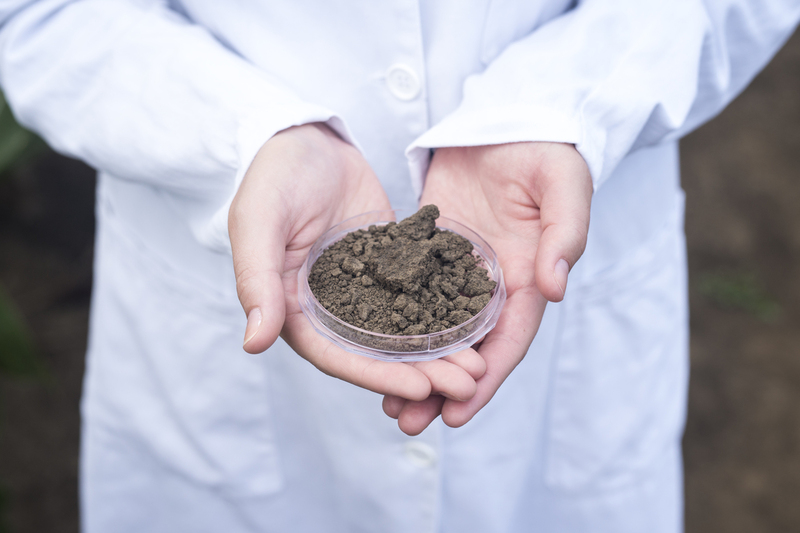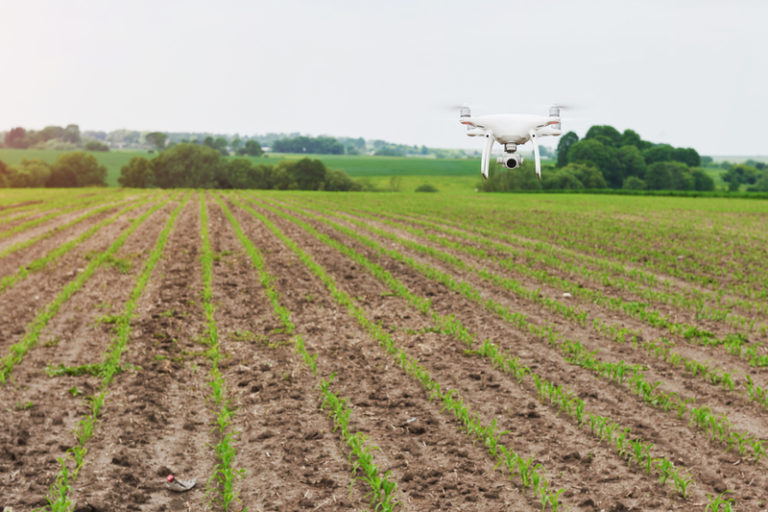Agrominerals: A Natural Solution for Soil Nutrient Management
Agrominerals are essential elements for plant growth and development, and they play a vital role in agriculture. They are natural mineral resources that help in improving soil fertility, enhancing plant growth, increasing crop yields, and boosting the nutritional value of crops. In this article, we will discuss the types, benefits, sources, challenges, and how to use agrominerals in agriculture.
Types of Agrominerals:
Agrominerals are essential nutrients required for plant growth and development. They can be divided into two categories: macronutrients and micronutrients.
A. Macronutrients:
Macronutrients are important nutrients that plants need in large amounts to grow and develop in a healthy way. They are the main parts of plant tissues and play a key role in photosynthesis, energy transfer, and other metabolic processes. Macronutrients required by plants include:
- Nitrogen (N): Nitrogen is a vital component of plant proteins, chlorophyll, and nucleic acids. It is required for the formation of new tissues and cell division.
- Phosphorus (P): Phosphorus is required for plant root development, photosynthesis, and energy transfer. It also plays a crucial role in the formation of plant cell walls.
- Potassium (K): Potassium is required for the regulation of water balance in plants and the activation of enzymes involved in photosynthesis and other metabolic processes.
- Calcium (Ca): Calcium is required for the formation of strong plant cell walls and healthy root development.
- Magnesium (Mg): Magnesium is required for the formation of chlorophyll and plays a vital role in photosynthesis.
- Sulfur (S): Sulfur is a component of amino acids, which are the building blocks of proteins. It is also required for the formation of chlorophyll.
B. Micronutrients:
Micronutrients are essential nutrients that plants need in small amounts to grow and develop in a healthy way. They are very important for many metabolic processes, such as photosynthesis, respiration, and activating enzymes. Micronutrients required by plants include:
- Iron (Fe): Iron is required for the formation of chlorophyll and the activation of enzymes involved in photosynthesis and respiration.
- Manganese (Mn): Manganese is required for the activation of enzymes involved in photosynthesis and respiration.
- Zinc (Zn): Zinc is required for the formation of enzymes involved in metabolic processes, including photosynthesis and respiration.
- Copper (Cu): Copper is required for the formation of enzymes involved in photosynthesis and respiration.
- Boron (B): Boron is required for the formation of plant cell walls and the regulation of calcium uptake.
- Chlorine (Cl): Chlorine is required for the regulation of plant water balance and the activation of enzymes involved in photosynthesis.
- Molybdenum (Mo): Molybdenum is required for the formation of enzymes involved in nitrogen fixation.
Benefits of Agrominerals:
Agrominerals are mineral substances that occur naturally and can be used as a source of nutrients for plants in farming.Some of the benefits of using agrominerals in agriculture include:
Cost-effective: Agrominerals are often less expensive than chemical fertilizers, making them a cost-effective alternative for farmers.
Environmentally friendly: Agrominerals are usually sourced from natural deposits and do not require the use of synthetic chemicals, making them a more environmentally friendly option.
Slow-release: Agrominerals release their nutrients slowly over time, providing a longer-lasting supply of nutrients to plants than chemical fertilizers.
Improve soil health: Agrominerals can improve soil health by adding essential nutrients, improving soil structure, and promoting microbial activity.
Increase crop yield and quality: Agrominerals provide plants with a balanced supply of essential nutrients, which can increase crop yield and improve crop quality.
Sustainable: The use of agrominerals is a sustainable approach to agriculture since they are naturally occurring and do not deplete non-renewable resources.
Can enhance food nutrition: Some agrominerals, such as rock phosphate and dolomite, can enhance the nutritional quality of food crops by adding essential minerals like phosphorus and calcium.
Overall, the use of agrominerals can help farmers produce healthy, high-yielding crops in an environmentally friendly and sustainable way.
Sources of Agrominerals
Agrominerals are naturally occurring minerals found in rocks and sediments. Some common sources of agrominerals include:
- Rock phosphate: a natural source of phosphorus, which is an essential nutrient for plant growth.
- Dolomite: a mineral that contains calcium and magnesium, which are important nutrients for plants.
- Greensand: a mineral rich in potassium, iron, and other trace minerals.
- Gypsum: a mineral that contains calcium and sulfur, which can help improve soil structure and provide nutrients for plants.
- Basalt: a volcanic rock that contains minerals such as calcium, magnesium, and iron, which can improve soil fertility.
- Glauconite: a mineral that contains potassium, iron, and other trace minerals that can promote plant growth.
- Zeolite: a mineral that can hold onto nutrients like nitrogen, making them available to plants over time.
Agrominerals can be found in many parts of the world and can be mined or extracted from the earth to be used in agriculture.
How to Use Agrominerals in Agriculture:
Agrominerals can be used in agriculture in several ways, including:
- Soil amendment: Agrominerals can be mixed with soil to improve its fertility and structure. The minerals in the agrominerals can provide essential nutrients for plant growth, improve water-holding capacity, and increase soil porosity, allowing roots to grow more easily.
- Fertilizer: Agrominerals can be used as a natural fertilizer to provide essential nutrients like nitrogen, phosphorus, and potassium to plants. You can put them directly on the soil or mix them with compost or other organic matter to make a balanced fertilizer.
- Animal feed: Some agrominerals, such as salt, can be used as animal feed supplements to provide essential minerals and nutrients for livestock.
- Water treatment: Agrominerals like zeolite can be used in water treatment systems to remove impurities and improve water quality.
- Plant growth enhancer: Agrominerals can be used as a plant growth enhancer by adding trace minerals like iron and manganese to the soil, which can improve plant health and increase yield.
It’s important to note that the application rates of agrominerals should be carefully calculated to avoid overapplication, which can lead to nutrient imbalances or environmental pollution. Additionally, the timing and method of application can vary depending on the specific agromineral and crop being grown. Farmers can consult with agricultural experts or soil testing laboratories for guidance on how to use agrominerals effectively and safely.
Challenges of Using Agrominerals:
Agrominerals are minerals that are taken from geological deposits and used in farming to add nutrients to the soil so crops can grow. Even though using agrominerals can have many benefits, such as making the soil more fertile and increasing crop yields, it can also be hard to do.
- Limited availability: The availability of agrominerals varies depending on their location, and their deposits may be limited in quantity. This can result in increased costs for transportation and processing, making them less accessible to farmers.
- Uneven distribution of nutrients: Agrominerals may contain varying amounts of essential nutrients, which can lead to uneven distribution in the soil, resulting in nutrient imbalances and affecting crop growth.
- Environmental impact: The mining and processing of agrominerals can have adverse effects on the environment, including soil erosion, water pollution, and habitat destruction.
- Cost: The use of agrominerals can be expensive, and their cost can be prohibitive for small-scale farmers, especially in developing countries.
- Risk of overapplication: Overapplication of agrominerals can lead to the accumulation of minerals in the soil, which can be harmful to plants and animals.
- Compatibility with organic farming: Some agrominerals may not be compatible with organic farming practices, which can limit their use in certain agricultural systems.
Overall, using agrominerals can be very helpful for agriculture, but their use should be carefully considered, with the specific situation and environmental effects of their use taken into account.
Conclusion:
In conclusion, agrominerals are a crucial component of sustainable agriculture. Their benefits in improving soil fertility, enhancing plant growth, increasing crop yields, and boosting the nutritional value of crops cannot be overemphasized.
However, the challenges of using agrominerals must be addressed through sustainable use, cost-effectiveness, and accessibility. It is imperative that farmers and agriculturists utilize agrominerals sustainably to ensure the long-term productivity and sustainability of our agricultural systems.
FAQ:
Q: What are agrominerals?
Ans: Agrominerals are natural mineral resources that are essential for plant growth and development. They can improve soil fertility, enhance plant growth, increase crop yields, and boost the nutritional value of crops.
Q: What are the types of agrominerals?
Ans: Agrominerals can be divided into two categories: macronutrients and micronutrients. Macronutrients include nitrogen, phosphorus, potassium, calcium, magnesium, and sulfur, while micronutrients include iron, manganese, zinc, copper, boron, chlorine, and molybdenum.
Q: What are the benefits of using agrominerals in agriculture?
Ans: Some benefits of using agrominerals in agriculture include cost-effectiveness, environmental friendliness, slow release of nutrients, improvement of soil health, increase in crop yield and quality, sustainability, and enhancement of food nutrition.
Q: What are the sources of agrominerals?
Ans: Agrominerals are naturally occurring minerals found in rocks and sediments. Some common sources of agrominerals include rock phosphate, dolomite, greensand, gypsum, basalt, glauconite, and zeolite.
Q: How can agrominerals be used in agriculture?
Ans: Agrominerals can be used as a soil amendment or as a natural fertilizer to provide essential nutrients for plant growth. They can also be used in composting or as a supplement to chemical fertilizers.
Also Read:
Understanding White Grub: Description, Economic Importance and Control Measures







